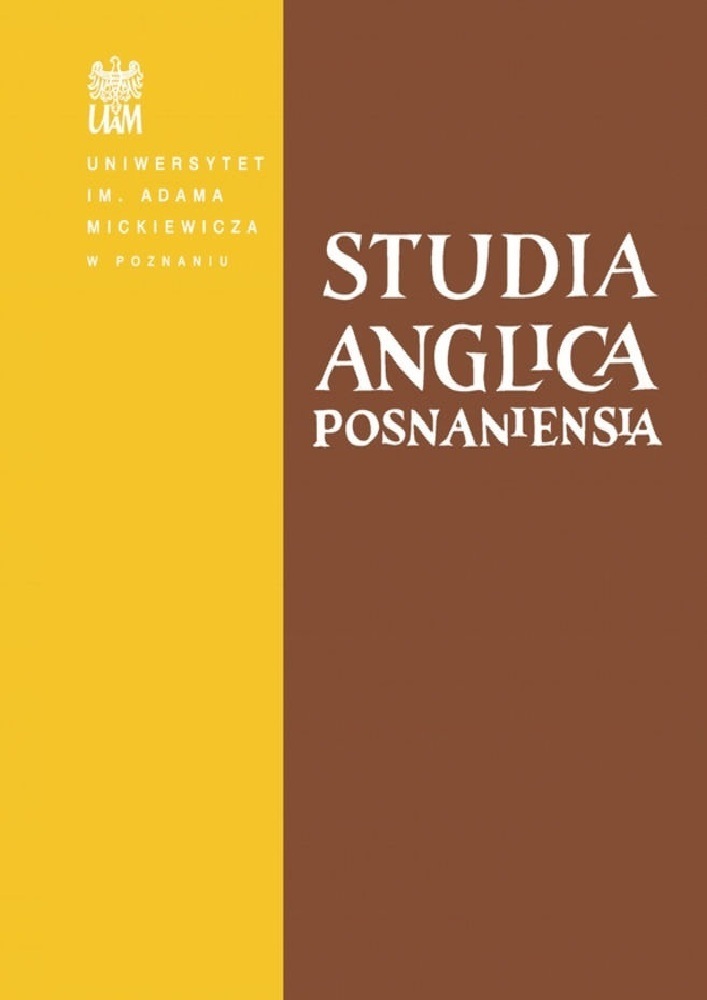Abstract
The present article is written almost a decade and a half after the reticent announcement of the death of literary theory by a number of scholars around the world. But during all these years, the humanities have not managed to drive Theory out of the seminar rooms of English departments, nor have the anti-theory proponents managed to remove it from the syllabi of English studies or even from the shelves of specialized libraries. After all these years, English studies academicians find themselves still doing Theory: holding conferences on how to conduct literary studies, organizing debates on how to launch new approaches that could possibly replace critical theories, and encouraging research into less-theorized methods of literary interpretation that could respond to the ineluctable need for a method in studying literature. For good or ill, whether we admit it or not, the echoes of literary theories continue to linger behind the scenes of all debates about literature and literary studies. The question is therefore not how to bring those echoes to silence, but rather how to find a way out of the post-theory deadlock by proposing what I have chosen to name the semeiocritical method as a theory-inspired, rather than theory-based approach to literature. The present article seeks to answer two questions: (1) how can we benefit from the lessons of literary theory without systematically doing theory or being methodically loyal to theories? and (2) how can we maximize the effects of literary interpretation in such a way as to cover as many aspects as possible of the signifying processes in the literary text while maintaining interpretive consistency?
References
Eliot, T. S. 2011 [1917]. The Waste Land and Other Poems. New York, NY: Broadway View Press.
Barthes, Roland. 1970. S/Z. Paris: Éditions du Seuil.
Bauerlein, Mark. 2007. Review of Theory’s Empire. In John Holbo (ed.), Framing Theory’s Empire, 1–6. West Lafayette, IN: Parlor Press.
Birns, Nicholas. 2010. Theory after theory: An intellectual history of literary theory from 1950 to the early 21st century. Peterborough, Ont. & Buffalo, NY: Broadview Press.
Bové, Paul. 1992. In the wake of theory. Middletown, CT: Wesleyan University Press.
Chandler, Daniel. 1995. Semiotics for beginners. https://visual-memory.co.uk/daniel/Documents/S4B/ (accessed 1 January 2019).
Conway, Christopher. 2007. Essentializing theory: A testimonial. In John Holbo (ed.) Framing theory’s empire, 111–113. West Lafayette, IN.: Parlor Press.
Culler, Jonathan D. 1975. Structuralist poetics: Structuralism, linguistics and the study of literature. London: Routledge.
Culler, Jonathan D. 1981. The pursuit of signs: Semiotics, literature, deconstruction. New York, NY: Cornell University Press.
Culler, Jonathan D. 2007. The literary in theory. Stanford: Stanford University Press.
Cunningham, Valentine. 2002. Reading after theory. Malden, MA & Oxford: Blackwell.
Davis, Colin. 2004. After post-structuralism: Reading, stories and theory. London & New York, NY: Routledge.
Docherty, Thomas. 1996. After theory (2nd edn). Edinburgh: Edinburgh University Press.
Dubreuil, Laurent. 2011. Literature after theory, or: the intellective turn. In Jane Elliott & Derek Attridge (eds), Theory after ‘theory’, 237–248. London: Routledge.
Eagleton, Terry. 1983. Literary theory: An introduction. Minneapolis, MN & London: University of Minnesota Press.
Eagleton, Terry. 2003. After theory. New York, NY: Basic Books.
Eco, Umberto. 1979. The role of the reader. Bloomington, IN: Indiana University Press.
Eco, Umberto. 1984. Semiotics and the philosophy of language. Bloomington & Indianapolis, IN: Indiana University Press.
Elam, Keir. 1980. The semiotics of theatre and drama. London & New York, NY: Routledge.
Felski, Rita. 2015. The limits of critique. Chicago, IL: The University of Chicago Press.
Fogarty, Sorcha. 2005. Binary oppositions. In Hugo Azerad, Edward Forman, David Houston Jones, Nigel Saint, Tim Unwin & David Williams (eds), The Literary Encyclopedia. Volume 1.5.2.07: Postwar and Contemporary French Writing and Culture, 1945–present. https://www.litencyc.com/php/stopics.php?pec=true&UID=122 (accessed 1 January 2019).
Good, Graham. 2001. Humanism betrayed: Theory, ideology and culture in the contemporary university. Montreal & Kingston: Mc Gill-Queen’s University Press.
Holbo, John (ed.). 2007. Framing Theory’s Empire. West Lafayette, IN.: Parlor Press.
Iser, Wolfgang. 1974. The implied reader. Baltimore, MD: John Hopkins University Press.
Knapp, Steven & Walter Benn Michaels. 1982. Against theory. Critical Inquiry, 8(4). 723–742.
Leitch, Vincent B. 2014. Literary criticism in the 21st century: Theory renaissance. London: Bloomsbury.
Mayer, John T. 1991. The Waste Land and Eliot’s poetry notebook. In Ronald Bush (ed.), T. S. Eliot: The modernist in history, 67–90. Cambridge: Cambridge University Press.
McCann, Sean. 2007. Theory’s Empire–wrestling the fog bank. In John Holbo (ed.), Framing Theory’s Empire, 61–68. West Lafayette, IN: Parlor Press.
McQuillan, Martin, Graeme Macdonald, Robin Purves & Stephen Thomson (eds). 1999. Post-theory: New directions in criticism. Edinburgh: Edinburgh University Press.
Olsen, Stein Haugrom. 1987. The end of literary theory. New York, NY: Cambridge University Press. DOI: 10.1017/CBO9780511983498
Patai, Daphne & Will H. Corral. 2005. Theory’s Empire: An anthology of dissent. New York, NY: Columbia University Press.
Payne, Michael & John Schad (eds). 2003. Life.after.theory. London: Continuum.
Punday, Daniel. 2003. Narrative after deconstruction. Albany, NY: State University of New York Press.
Schad, John. 2003. Preface. What are we after? In Michael Payne & John Schad (eds), Life.after.theory, ix–xi. London: Continuum.
Selden, Raman, Peter Widdowson & Peter Brooke (eds). 2005. A reader’s guide to contemporary literary theory (5th edn). London: Pearson Longman.
Stevens, Anne H. 2015. Literary theory and criticism: An introduction. Peterborough, Ont.: Broadview Press.
Tyson, Lois. 2014. Critical theory today: A user-friendly guide (3rd edn). London: Routledge.
Wallen, Jeffrey. 2007. The death and discontents of literary theory. In John Holbo (ed.), Framing Theory’s Empire, 133–134. West Lafayette, IN: Parlor Press.
